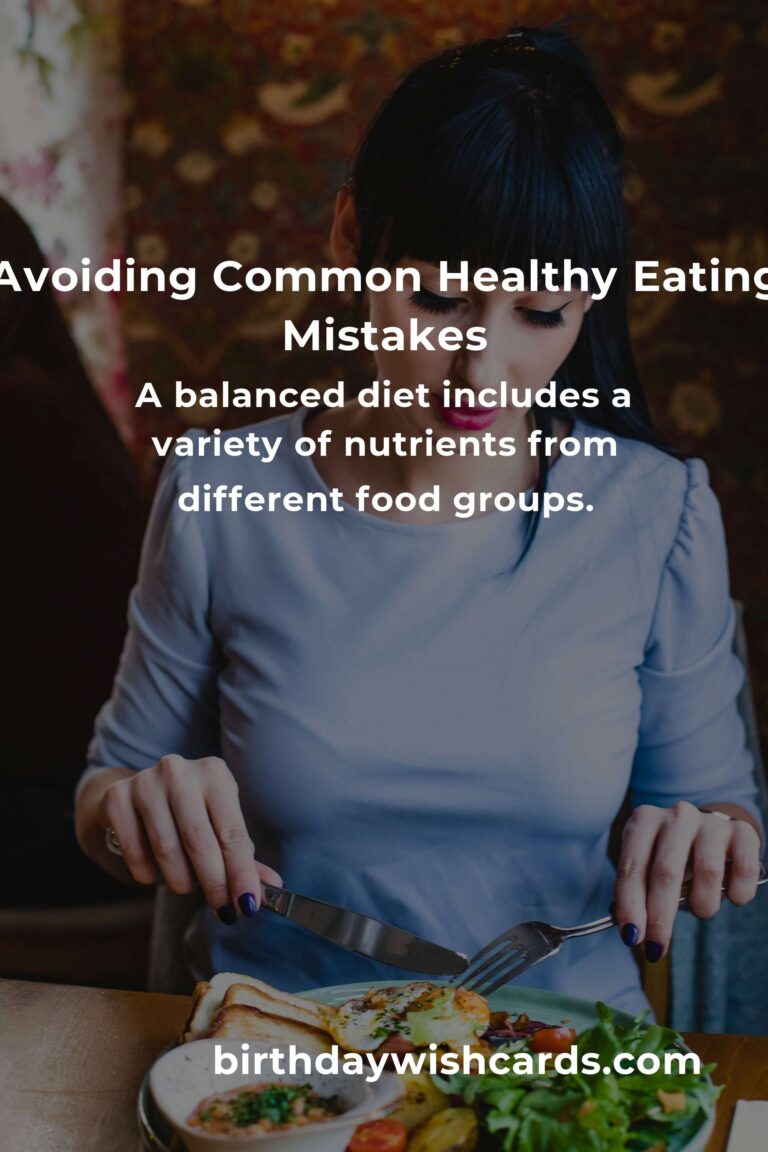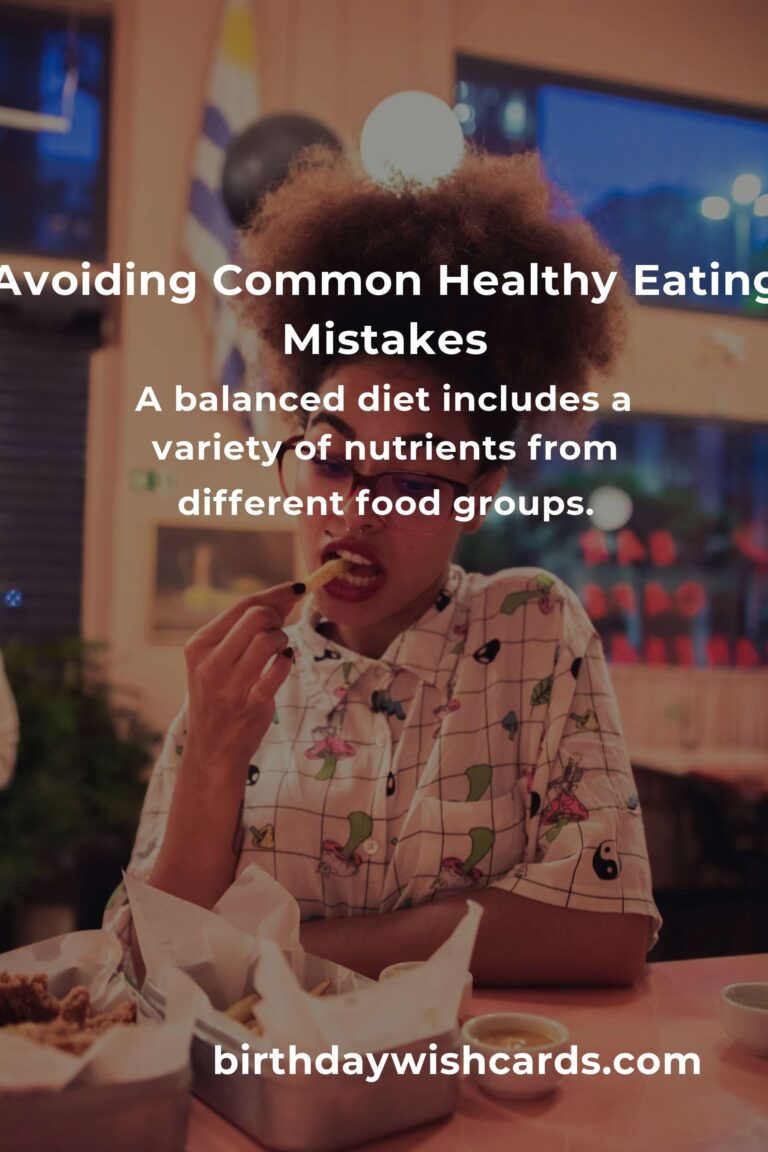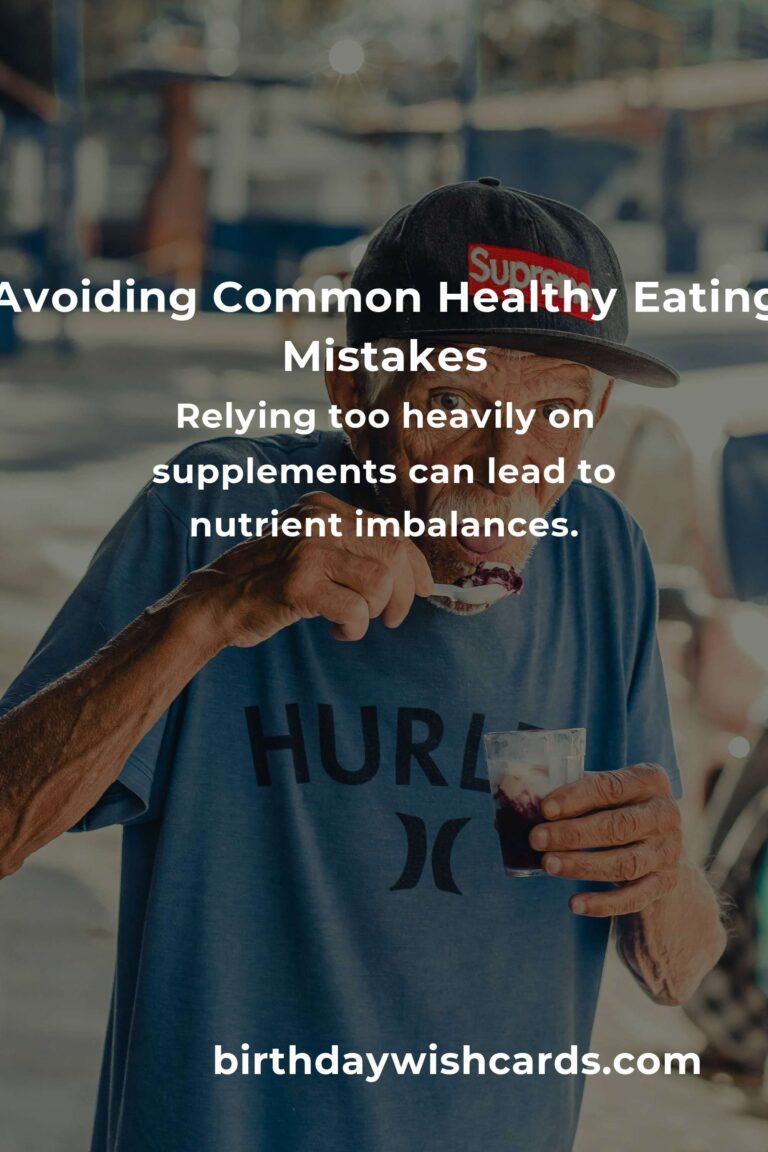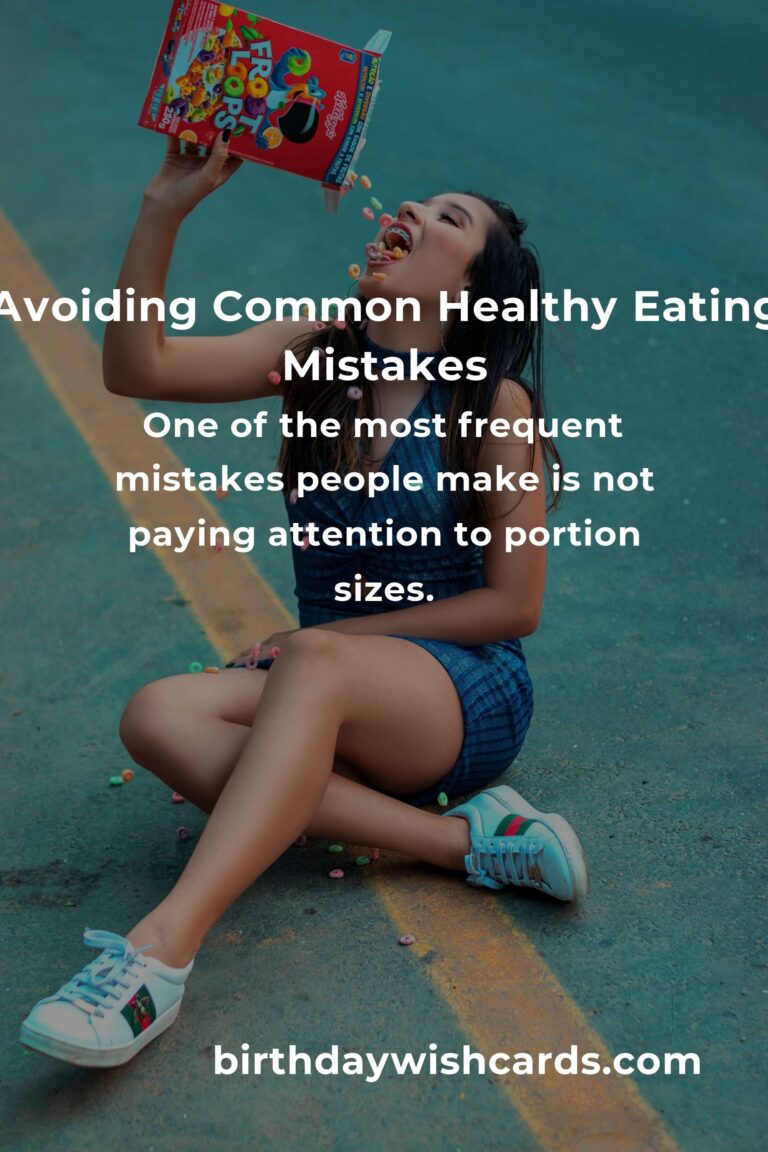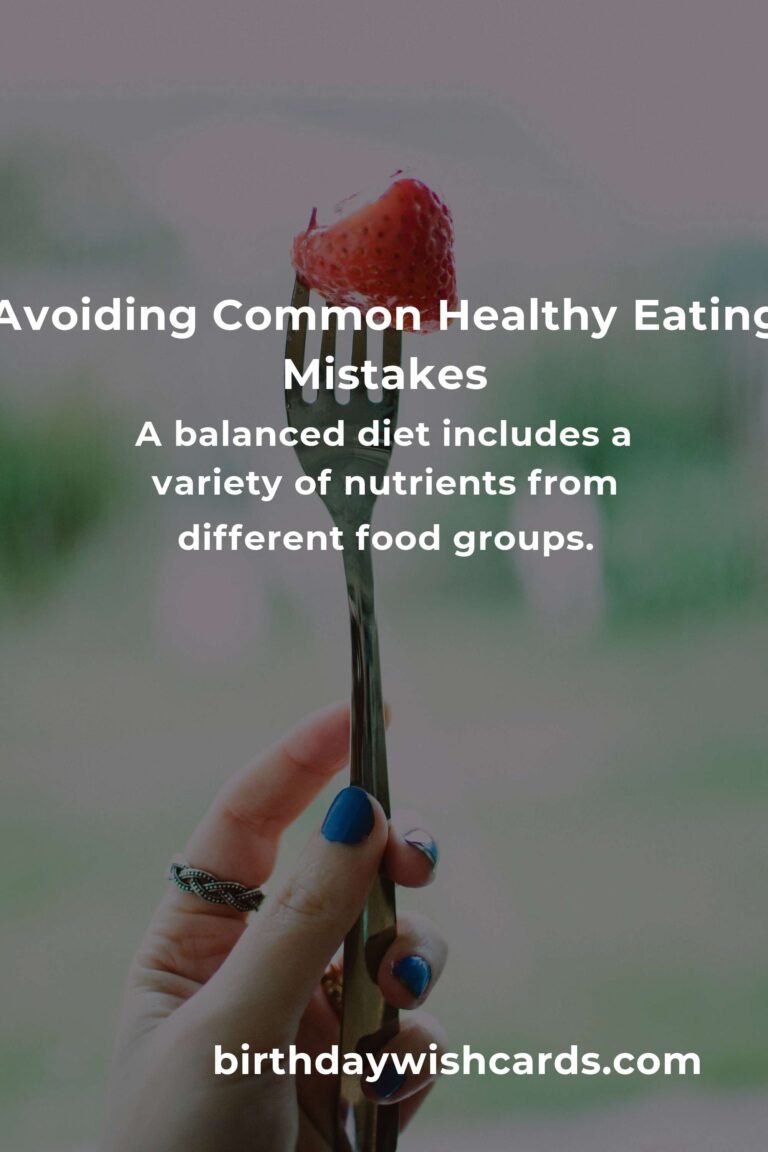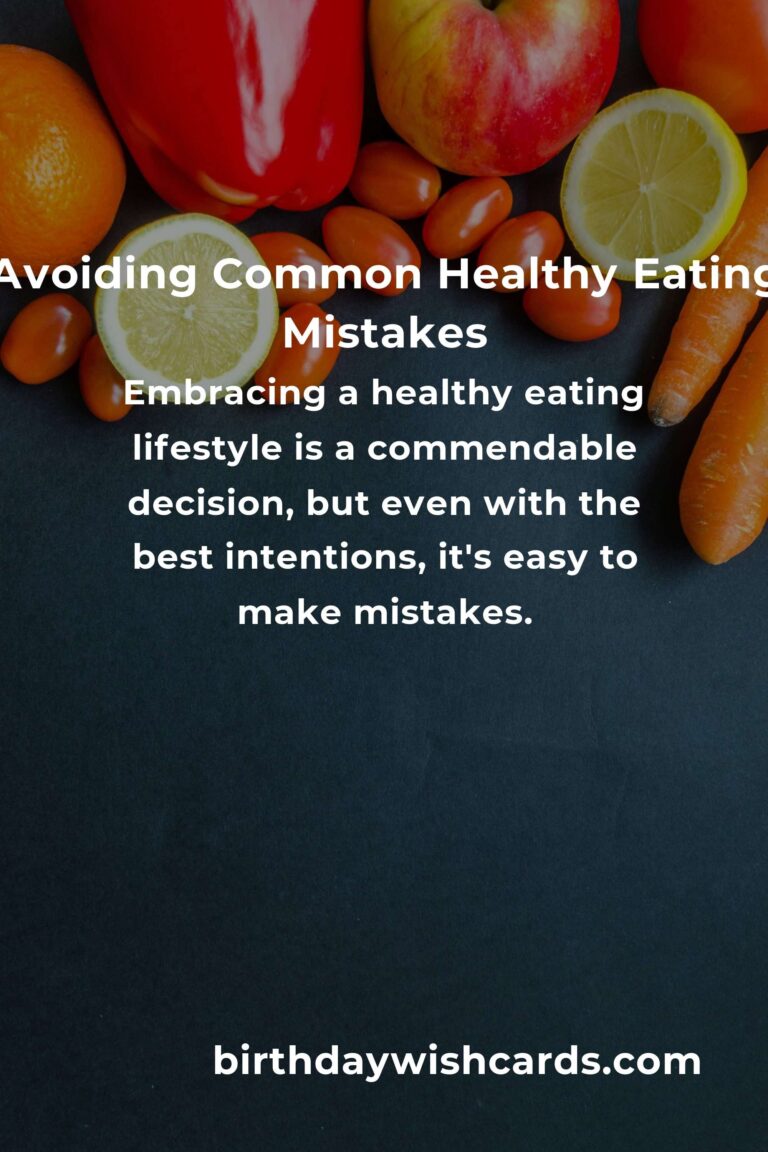
Embracing a healthy eating lifestyle is a commendable decision, but even with the best intentions, it’s easy to make mistakes that can derail your efforts. Understanding these common pitfalls and learning how to avoid them can make a significant difference in achieving your nutrition goals.
1. Overlooking Portion Sizes
One of the most frequent mistakes people make is not paying attention to portion sizes. Even healthy foods can contribute to weight gain if consumed in large quantities. It’s important to familiarize yourself with recommended serving sizes and try to stick to them.
To avoid this mistake, consider using smaller plates and bowls, which can naturally help control portions. Additionally, pay attention to your body’s hunger cues and avoid eating out of boredom or stress.
2. Ignoring the Importance of Balance
Another common error is focusing too much on one aspect of healthy eating, such as cutting out carbs or fats entirely. A balanced diet includes a variety of nutrients from different food groups. Carbohydrates, proteins, and fats all play essential roles in maintaining health.
To maintain balance, aim to fill your plate with a mix of vegetables, lean proteins, and healthy fats. Remember, moderation is key, and no single food group should be completely eliminated from your diet.
3. Falling for ‘Healthy’ Food Labels
Food marketing can be misleading, and products labeled as ‘healthy,’ ‘low-fat,’ or ‘sugar-free’ aren’t always the best choices. These labels can often disguise high levels of other unhealthy ingredients, like sodium or artificial additives.
To avoid this trap, read the ingredient list and nutritional information on food packaging. Opt for whole, minimally processed foods whenever possible.
4. Skipping Meals
Skipping meals might seem like a quick way to reduce calorie intake, but it often backfires. It can lead to overeating later in the day, disrupting your metabolism and causing energy levels to plummet.
Instead, aim to eat regular, balanced meals and healthy snacks throughout the day. This supports consistent energy levels and helps prevent hunger-related overeating.
5. Not Drinking Enough Water
Proper hydration is a crucial part of a healthy diet, yet many people overlook it. Dehydration can be mistaken for hunger, leading to unnecessary snacking.
To stay hydrated, carry a water bottle with you and sip throughout the day. Herbal teas and water-rich fruits and vegetables can also contribute to your daily fluid intake.
6. Relying Too Much on Supplements
While supplements can be beneficial, they shouldn’t replace a varied diet. Relying too heavily on supplements can lead to nutrient imbalances and doesn’t provide the same health benefits as whole foods.
Focus on getting your nutrients from a diverse range of foods first, and use supplements to fill any specific gaps as needed, preferably under the guidance of a healthcare professional.
Conclusion
Healthy eating is about making informed choices and maintaining balance. By avoiding these common mistakes, you can create a sustainable eating pattern that supports your health and wellness goals. Remember, it’s not about perfection but about steady progress and making choices that nourish your body.
Embracing a healthy eating lifestyle is a commendable decision, but even with the best intentions, it’s easy to make mistakes. One of the most frequent mistakes people make is not paying attention to portion sizes. A balanced diet includes a variety of nutrients from different food groups. Food marketing can be misleading, and products labeled as ‘healthy’ aren’t always the best choices. Skipping meals might seem like a quick way to reduce calorie intake, but it often backfires. Proper hydration is a crucial part of a healthy diet, yet many people overlook it. Relying too heavily on supplements can lead to nutrient imbalances.
#HealthyEating #NutritionTips #BalancedDiet #HealthMistakes #Wellness


